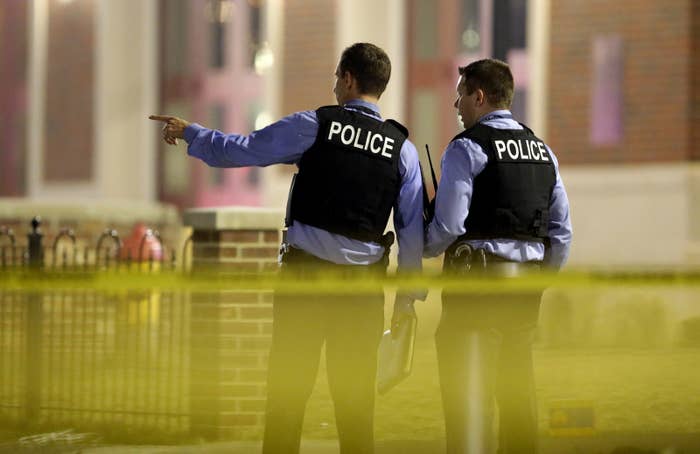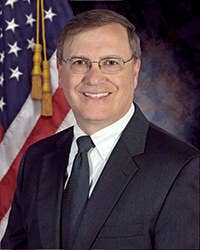
The nation's top drug enforcement official said Wednesday he's heard concerns from local police chiefs about the "Ferguson effect": a fear and reluctance among police officers to act because they may face scrutiny or community unrest.
Drug Enforcement Administration Administrator Chuck Rosenberg told reporters that he did not know if those fears were the reason that some U.S. cities are seeing rising crime rates — a theory recently advanced by FBI Director James Comey. But Rosenberg said he found Comey's remarks "spot on," according to USA Today.
Last month, Comey said in a speech at the University of Chicago that viral videos and “today’s YouTube world” could be leading a wave of scrutiny and doubt on police nationwide.

“I don’t know whether this explains it entirely, but I do have a strong sense that some part of the explanation is a chill wind blowing through American law enforcement over the last year,” Comey said. “And that wind is surely changing behavior.”
"I've heard the same things,'' Rosenberg said Wednesday. "I think it's worth talking about. I don't know if it will turn out to be right or wrong. That's why Comey called for better data. The data that we have is limited. It just is.''
“I rely on the chiefs and the sheriffs who are saying that they have seen or heard behavioral changes among the men and women of their forces,” he continued. “The manifestation of it may be a reluctance to engage" with suspects.
Rosenberg served as Comey's chief of staff before being named to head the DEA earlier this year. The two men's description of a Ferguson effect is at odds with President Obama and the White house, who have said there's no evidence to support that police officers are afraid to do their jobs.
Rosenberg acknowledged that evidence is so far anecdotal, and he added violent crime rates are also connected to gang competition for drug markets and the availability of guns, ABC News reported.
"There are some places where homicides are up and shootings are down. And then there are other places where both are up, and other places where both are down,” Rosenberg said. “We’re not entirely sure what’s going on, and we ought to talk about it and try to figure it out.”
